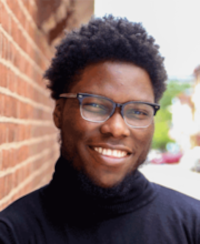Join us at the RC21 in Santiago, Chile, for the 2024 IJURR Lecture. This will take place on July 25th at 9-10 am.
‘Government Magic: On Urban Policing, Spectral Violence, and Transnational Solidarity’ by Daniel Agbiboa (Harvard University). Chaired by Eduardo Márquez
The murder of George Floyd by now-former Minneapolis police officer Derek Chauvin in 2020 generated intense scrutiny and solidarity around the globe. And nowhere as critically as from urban Africa, which shortly after experienced its own “Floyd moment” in the form of the #EndSARS movement against police brutality. This talk will bring two distinct contexts (Nigeria and the USA) into conversation to elucidate the magic of the state (its spectral power), focusing on incidents of police brutality and the popular urban movements of resistance that have erupted to denounce and counter it. Linking #EndSARS in Nigeria to #Black Lives Matter in the US, two campaigns on either side of the Atlantic that nevertheless shared intimate characteristics in 2020, this talk will argue that the popular focus on the gruesome (i.e., “spectacular”) features of police brutality conceals the far more ordinary and taken-for-granted status of police violence which depend on unseen, spectral forces emanating from the state. Police brutality extends far beyond the occasional spectacular incidents caught on video. By converging on the spectacle, we lose sight of the pervasive, ghost-like, and structural nature of policing and, in doing so, lose grounds for critical deprovincialization and transnational solidarity as a way to disrupt and unsettle spectral power.
Additionally, IJURR Editor, Mona Fawaz, will be giving a keynote session, ‘Inhabiting Beirut’s Ruins’, along with colleague Catalina Ortiz, chaired by Sonia Roitman, on July 26th at 11-12.30.
Despite recognizing the urbanization of refugee experiences, much of the literature on forced migration continues to approach population displacement in isolation of the urban trends in which its patterns are inscribed. In reality, forced displacement shapes urbanization. Its modes of governance, the flows of capital it generates, and the practices of the multiple actors who intervene in its organization intersect with other trends and flows that make today’s cities. This presentation seeks to locate the urban dwelling of Syrian refugees in Beirut (Lebanon) within the cycles of boom and bust that characterize the city’s transformation at a time when much of the state regulatory and social infrastructures have disintegrated. The presentation focuses on the inhabitance of refugee tenants occupying either residual spaces left in the aftermath of earlier (now failed) building developments or spaces held through predatory investments in anticipation of future redevelopment (Ren 2014). The research looks to disentangle the mechanisms through which this form of precarious inhabitance unfolds by mapping the actors who intervene in its organization (e.g., tenants, property owners, brokers, managers, intermediaries, public agents), the arrangements that are put in place to regulate it (e.g., agreements, connections, contracts, property titles), and the institutions that sustain their practices (e.g., municipality, kin, political parties). In doing so, the research extends contemporary critical urban debates by foregrounding the often overlooked intersections of financialization, rental markets, and property holdings with the experiences of urban refugees, showing that these trends are often co-constitutive and cannot be studied in isolation of each other.
You can find more information on the conference in the final program, here.

